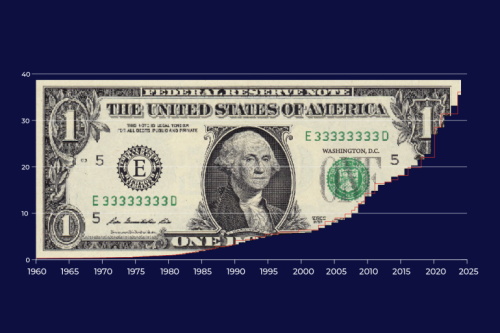Data as the New Oil: Monetizing AI Training Datasets

As we move deeper into the digital era, the idea that "data is the new oil" has gained widespread recognition, highlighting the critical role data plays in driving technological and economic transformation. As early as 2006, British mathematician Clive Humby first introduced this concept to emphasize the pivotal role of data in contemporary society. While oil once drove the machinery of the Industrial Revolution, today it's data that is propelling the rise of digital innovation and intelligent systems.
However, unlike oil, data is not a scarce resource—it is growing exponentially every day. Social media likes, browsing histories, voice recognition inputs, footage from smart cameras, even a shopping receipt—these are all sources of data. Yet their true value can only be unlocked once they are "refined."
Data Is Not Just Fuel—It's the Foundation of AI
With the rapid development of artificial intelligence, data has become more than just a decision-making aid—it is the very foundation upon which AI models depend. The core strength of AI lies in its ability to detect and learn patterns from data. Whether it's image recognition, natural language processing, or autonomous driving, the underlying algorithms are all reliant on massive, high-quality, and representative training data.
This is especially evident in the era of large-scale models. As large language models like GPT and Claude become widely applied, AI is shifting from the “lab” to the “industry.” What powers this shift is no longer just algorithmic innovation but a deep integration of data and models. The role of databases is also evolving—from traditional data storage to an integrated “data backbone” capable of supporting transactional processing, analytical computation, and AI inference simultaneously.
Monetizing Data: From Crude Oil to Digital Gold
Just like crude oil must be refined into gasoline or plastic, raw data must go through processes such as cleaning, structuring, annotation, and processing to truly unleash its value. In artificial intelligence, the effectiveness of a model is closely tied to the quality of its training data—datasets that are well-organized, accurate, and relevant to specific tasks are both harder to find and more valuable.
As such, a clearer path to data monetization is emerging:
1. Direct Sale of Training Data
A number of platforms, such as Scale AI, LAION, and HuggingFace Datasets, are already offering structured or semi-structured datasets for sale, covering images, audio, text, video, and more. These datasets are widely used by enterprises for pretraining, fine-tuning, and deployment, significantly improving R&D efficiency.
Beyond standardized datasets, there are also companies that specialize in custom data collection and annotation services, tailored for more specialized or vertical AI models. For example, autonomous driving models require large amounts of traffic video footage; medical imaging AI depends on highly accurate pathology images; and customer service bots need access to tens of millions of dialogue samples.
2. Data Licensing and Copyright Battles
The higher the commercial value of data, the more complex the copyright issues become. In the digital space, everything is converted into reproducible binary code—movies, music, articles, social media dialogues, user reviews—all essentially count as “data assets.”
This raises a key question: who owns the copyright to this data? Does training AI models with massive publicly available data infringe on the intellectual property of original creators? And when AI-generated content is monetized, should its creators be compensated?
To prevent misuse and theft, technical safeguards such as digital watermarking, encrypted storage, access controls, and blockchain-based tracing have been increasingly deployed in copyright protection. Meanwhile, more governments are beginning to push for regulatory frameworks to govern the use of data in AI training—aiming to strike a balance between technological advancement and protecting content creators' rights.
Data Sovereignty: A Geopolitical Struggle in the Digital Age
Data monetization is not just a business competition—it's becoming a geopolitical battleground.
Around the world, governments are attaching increasing importance to data sovereignty, which is the principle that a country should have control over the collection, storage, usage, and flow of data generated within its borders. But putting this principle into practice is far from simple.
First, countries differ greatly in how they regulate data flow. Some advocate for "free data flows" to maximize global market efficiency, while others prioritize data security and local storage. For example, the European Union’s General Data Protection Regulation (GDPR) sets rigorous rules for how personal data can be transferred across national borders, aiming to ensure user privacy and data security.
Second, the dominance of tech giants over global data resources is a growing concern. Companies like Google, Amazon, and Facebook, with their vast platforms and technical capacities, control enormous volumes of user data—often more than national governments. This asymmetry has led to fears of “data colonialism.”
Compounding the issue, many multinational companies locate their data centers in jurisdictions with lenient regulations to evade national legal constraints. This undermines sovereign regulatory frameworks and increases the risk of data misuse and breaches.
Currently, there is no unified global mechanism for data governance. Deep divides exist between developed and developing countries, as well as between Eastern and Western regulatory ideologies. This has led to a “regulatory vacuum” and a growing “data cold war.” Whoever sets the rules for global data flows could ultimately gain dominance in the digital world.
Whoever Controls Data, Controls the Future
As algorithms become increasingly open-source and model architectures grow more homogeneous, the core competitive edge in AI is shifting toward data. In the future, competition among enterprises—and even nations—will hinge largely on data. Those who control high-quality data will have the ability to train more powerful AI models, thereby gaining economic, technological, and governance advantages.
“Data is the new oil” is not just a slogan—it reflects a new economic logic and geopolitical reality. At the heart of this logic lies a critical crossroads: one path leads to innovation and prosperity powered by technology, the other to intensifying conflicts over data ownership and usage rights.
The future of the data-driven world will not only depend on having more data, but on governing it better.



